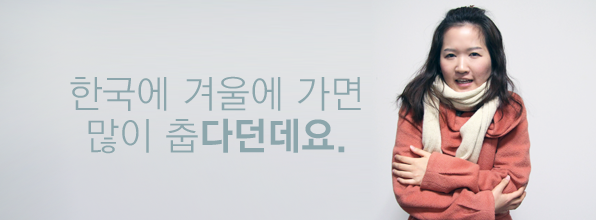TTMIK Level 7 Lesson 18

In the previous lesson, we learned how to say “They say …”, or “I hear that …” in Korean in order to re-tell someone what you’ve heard from someone else. The structures used for saying these are -(ㄴ/는)대(요) and -(이)래(요).
Let’s review a little bit.
1.
제 친구가 지금 바빠요. = My friend is busy now.
→ 제 친구가 지금 바쁘대요. = My friend says that she is busy now.
2.
이게 제일 좋은 거예요. = This is the best one.
→ 이게 제일 좋은 거래요. = They say that this is the best one.
And in this lesson, we are looking at the following structures:
1. -(ㄴ/는)다던데(요)
2. -(이)라던데(요)
Both of these are very similar to the structures introduced in the previous lesson. -(느)ㄴ다던데(요) is similar to -(ㄴ/는)대(요) (from the first review sentence above) and -(이)라던데(요) is similar to -(이)래(요). Just like -(ㄴ/는)대(요) is an abbreviation of -(ㄴ/는)다고 해(요), -(ㄴ/는)다던데(요) is an abbreviation of -(ㄴ/는)다고 하던데(요). The same applies to -(이)래(요) and -(이)라던데(요).
Difference between -(ㄴ/는)대(요) and -(ㄴ/는)다던데(요)
Whereas -(ㄴ/는)대(요) is used to mainly just re-tell a story or deliver certain information, when you use -(ㄴ/는)다던데(요), you imply that you want some kind of reaction or response from the listener.
지금 와요. = She’s coming now.
지금 온대요. = She says she’s coming now.
지금 온다던데요. = She says she’s coming now. (+ (ex) Should we wait?/What do you think?)
유명해요. = He’s famous.
유명하대요. = They say he’s famous.
유명하다던데요. = They say he’s famous. (+ (ex) But you said otherwise, right?)
* The same applies to -(이)래(요) and -(이)라던데(요).
학생이에요. = He’s a student.
학생이래요. = He says he’s a student.
학생이라던데요. = He says he’s a student. (+ (ex) What shall we do then?)
공원이에요. = They are at a park. / It is a park.
공원이래요. = They say they are at a park.
공원이라던데요. = They say they are at a park. (+ (ex) Shall we go there?)
Difference between -(ㄴ/는)다던데(요) and -(ㄴ/는)다는데(요)
There is a slight difference in nuance between -던데 and -는데, and it’s based on the fact that -던 is usually associated with the past tense whereas -는 is associated with the present tense. We are going to look at -던 in a more detail in a future lesson, so please just note the difference for now.
지금 온다던데요. = They said that they would come here now.
지금 온다는데요. = They are saying that they will come here now.
유명하다던데요. = I heard that she’s famous.
유명하다는데요. = He is saying that she’s famous.
* The same applies to -(이)래(요), -(이)라던데(요) and -(이)라는데(요).
학생이라던데요. = They told me that they were students.
학생이라는데요. = They say that they are students.
공원이라던데요. = They said that they were at a park.
공원이라는데요. = They say that they are at a park.
Sample Sentences
1. 여기 위험하다던데요.
[yeo-gi wi-heom-ha-da-deon-de-yo.]
= I heard that this place is dangerous. (+ (ex) What do you think?)
2. 혼자 갈 거라던데요.
[hon-ja gal geo-ra-deon-de-yo.]
= She said she would go there alone. (+ (ex) Shall I talk to her again? / You can’t go with her.)
3. 그 사람도 모른다던데요.
[geu sa-ram-do mo-reun-da-deon-de-yo.]
= He said that he doesn’t know either. (+ (ex) So why keep asking him?)
4. 벌써 다 끝났다던데요.
[beol-sseo da kkeut-nat-da-deon-de-yo.]
= They said that it was already all over. (+ (ex) There was nothing I could do.)
5. 한국에 겨울에 가면 많이 춥다던데요.
[han-gu-geo gyeo-u-re ga-myeon ma-ni chup-da-deon-de-yo.]
= I heard that it’s very cold in Korea if you go there in winter. (+ (ex) Perhaps you should pack more clothes.)